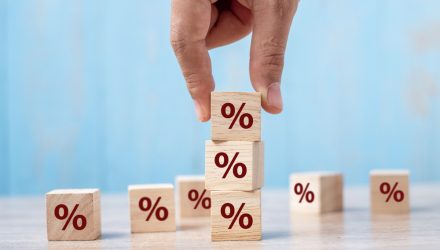Conventional wisdom says that higher interest rates can hinder dividend stocks. In theory, that makes sense because higher yields on lower risk government bonds could compel income investors to dial back risk and eschew equities and even dividend stocks, which are often less volatile than their non-payout counterparts.
“Higher bond yields pose more competition to dividend stocks, threatening valuations if investors turn to income-paying alternatives,” reports Lawrence Strauss for Barron’s.
While “things will be different this time” are often viewed as famous last words in investing, dividend stocks and exchange traded funds, including the SmartETFs Dividend Builder ETF (DIVS), could prove more durable than expected as Treasury yields climb. That’s something for investors to mull over as the Federal Reserve inches toward a 2022 rate hike.
Keith Lerner, co-chief investment officer at Truist Advisory Services, tells Barron’s that dividend equities could prove durable if the Fed is pragmatic in its approach to tightening. That’s expected to be the case, since markets are pricing in just one rate hike in 2022.
“Lerner says there have been 15 times since the 1950s when the 10-year Treasury’s yield rose at least 1.5 percentage points off its low. The S&P 500 had an average annualized return of 12% during those rising-rate stretches, he adds,” according to Barron’s.
Recently, 10-year Treasury yields matriculated higher in noticeable fashion. However, DIVS gained nearly 5% in October, indicating that the fund isn’t vulnerable to higher rates. One reason for this is that high-yield dividend stocks are the ones that are most sensitive to changes in interest rates. For its part, DIVS is a quality dividend growth strategy with scant exposure to traditionally high-dividend sectors.
DIVS’ positioning as a dividend growth strategy is meaningful here and now for another reason. Payout growth historically is a viable avenue for beating inflation, which is a concern for investors today.
“Lerner attributes the recent uptick in bond yields in part to concerns about higher inflation. In August, the personal-consumption-expenditures price index, which excludes food and energy, rose 3.6% from a year ago, according to the Dallas Fed, well above the 2% average the Federal Reserve is targeting over time,” according to Barron’s.
Rising rates or not, inflation is proving persistent, indicating that DIVS is now a credible idea for income investors.
For more news, information, and strategy, visit the Dividend Channel.
The opinions and forecasts expressed herein are solely those of Tom Lydon, and may not actually come to pass. Information on this site should not be used or construed as an offer to sell, a solicitation of an offer to buy, or a recommendation for any product.

